Hon. Melissa Jones
Faculty Council
The 10-member Faculty Council provides input to the College’s administration and Board of Trustees
Hon. Melissa Jones
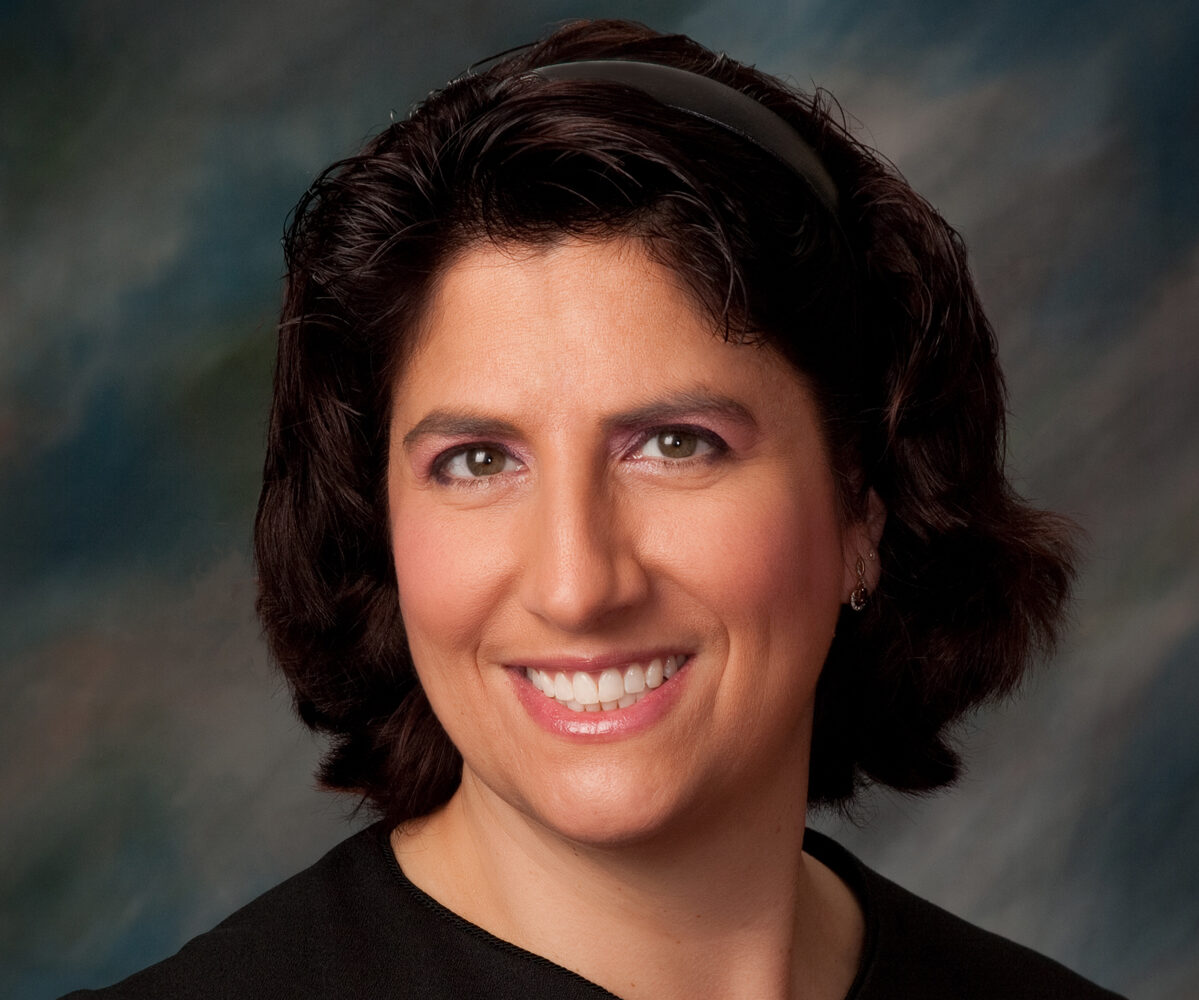
Columbia, MD
In October 2019, the Honorable Melissa Lin Jones joined the United States Department of Labor as a member of the Benefits Review Board and administrative appeals judge. From 2006 through 2009, Judge Jones was an administrative law judge with the D.C. Department of Employment Services, Office of Hearings and Adjudication, Administrative Hearings Division, and from 2010 through 2015, she adjudicated workers’ compensation appeals as an administrative appeals judge for the D.C. Department of Employment Services, Compensation Review Board. Judge Jones was an administrative law judge with the Social Security Administration from 2015 through 2019.
Judge Jones wrote “One-Shotters or Have-Not’s Should Come Out Ahead In the District of Columbia’s Private Sector Workers’ Compensation System But Do They?” and “Why Proving a Work-Related, Psychological Injury Claim Stresses You Out,” both published in volume 41 of the Journal of the National Association of Administrative Law Judiciary. She also wrote “Injecting Fault into a No-Fault System: The Aggressor Defense in District of Columbia, Work-Related Fight Cases” in volume 32 of the Hofstra Labor and Employment Law Journal, “Why Did You Do That? Confessions of a Master of Judicial Studies Graduate” in the 2014/2015 edition of Case In Point, and “Success in the Practice of Administrative Adjudication” in the July/August 2010 edition of The Washington Lawyer. In addition to reviewing and improving several textbooks, she also was a contributor to Black’s Law Dictionary, Dictionary of Legal Usage, Modern American Usage, and Reading the Law: The Interpretation of Legal Texts (a book about statutory construction by co-authors Bryan A. Garner and Justice Antonin Scalia.)
Judge Jones earned her Bachelor of Arts (summa cum laude) in the honors program at St. Bonaventure University; her major was English literature. Her Juris Doctorate was conferred by the State University of New York at Buffalo School of Law. In May 2014, she earned her Master’s Degree in Judicial Studies at the University of Nevada, Reno, and in May 2021 she earned her Doctorate Degree in Judicial Studies at the University of Nevada, Reno.
John Molaison
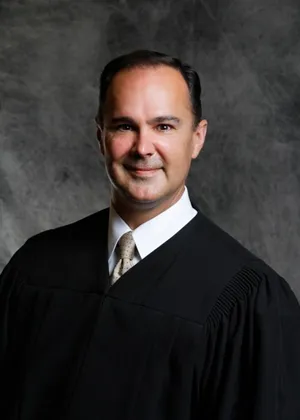
Gretna, Louisiana
Judge John J. Molaison, Jr. is the presiding judge of Division “E” of the 24th Judicial District Court in Gretna, Louisiana. He was elected to the bench in 2007, and served as Chief Judge of the 24th Judicial District Court from 2011 to 2013. Prior to his election, he was the managing partner of Molaison and LeBlanc. He was also an Assistant District Attorney in Jefferson Parish from the time he was admitted to the Louisiana Bar in 1986, to the time he was elected to the bench in 2007. During his tenure with the Jefferson Parish District Attorney’s Office, he served as a felony prosecutor, the Supervisor of Parish Courts, and the Executive Assistant District Attorney. Additionally, Judge Molaison was the Prosecutor and City Attorney for the City of Westwego and the Prosecutor and Town Attorney for the Town of Grand Isle for approximately 20 years. Judge Molaison serves on numerous committees, including the Judiciary Commission of Louisiana, the Judiciary Budgetary Control Board for the statewide judiciary budget, and the Judicial Counsel of the Louisiana Supreme Court. He is the immediate past president of the Louisiana District Judges Association, the current Ethics Compliance Officer of the Louisiana District Attorneys Association, and a faculty member of the National Judicial College.
Judge Molaison received his Juris Doctor from Loyola University New Orleans, College of Law, in 1986. He received his Bachelor of Science in Business Administration from Loyola University New Orleans in 1983. He is an alumnus of The National Judicial College and joined its faculty in 2013.
Hon. Jim McCune
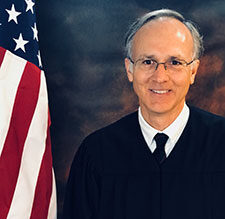
Ocala, Florida
Jim McCune began serving the people of Marion County, Florida, as a County Court Judge on March 1, 2002. He was appointed by Governor Jeb Bush. In 2004, 2010 and 2016, he was elected to serve full 6 year terms. He is a graduate of Washington & Lee University in Virginia [Bachelor of Arts], Valparaiso University School of Law in Indiana [Juris Doctor] and Emory University School of Law in Georgia [Master of Laws]. He was admitted to practice law in Indiana in 1982, in Florida in 1984, and in Texas in 1997. Jim was an Assistant State Attorney in Florida’s 5th Judicial Circuit for 13 years before becoming a judge. At the State Attorney’s Office, Jim supervised the Public Interest Unit for 6 years and prosecuted the Circuit’s economic crimes, crimes against the elderly, environmental crimes and crimes involving public officials. He also worked for 6 years as a murder prosecutor handling the Circuit’s death penalty cases. Before joining the State Attorney’s Office, Jim worked for 3 years as a Law Clerk for a Justice of the Indiana Supreme Court in Indianapolis and for 2 ½ years as a Florida Assistant Attorney General handling civil RICO cases throughout Florida. Jim grew up in Montclair, New Jersey, and graduated from Montclair High School. Jim is married to Jessica who is a 5th generation Texan.
Jim McCune works for the improvement of the courts system in Florida. In particular, Jim was elected to serve as President-Elect of the Conference of County Court Judges of Florida in 2012. From July 2013 until July 2014, Jim served as President of the Conference of County Court Judges of Florida and still serves on the Conference’s Board of Directors. Jim served on the Florida Court Education Council from 2009 until 2014. He also served for 10 years on the Publications Committee of the Florida Court Education Council. Jim served 1 year on the Florida Trial Court Budget Commission. In 2015, Jim was appointed to the Florida Supreme Court’s Court Interpreter Certification Board and currently serves on that Board. In 2016, Jim was appointed to the Florida Supreme Court’s Task Force on Substance Abuse and Mental Health Issues in the Courts and then appointed in 2018 to the Florida Supreme Court’s Steering Committee on Problem-Solving Courts.
Jim McCune works for the improvement of the courts system in Marion County. In particular, Jim led the planning and launch of a Mental Health Court for Marion County in 2009 and a Veterans Treatment Court in 2012. Jim presided over the Mental Health Court until September 2014 and continues to preside over the Veteran’s Treatment Court. As part of his planning for the Veterans Treatment Court, Jim was selected and participated in the Joint Civilian Orientation Conference sponsored by the U.S. Secretary of Defense in 2011. He also spent a week in Buffalo, New York, as part of a team from Marion County working with those who started the nation’s first Veterans Court to plan for the Marion County Veterans Court. Jim has served for many years as the Administrative County Court Judge for Marion County.
Jim McCune works for the improvement of the legal profession. In particular, Jim was appointed to serve as Chair of the Florida Bar’s Standing Committee on Professionalism for 1 year in 2006. He was reappointed to that Committee in 2014 and is presently serving on it. Jim has in the past been appointed to serve on the Florida Supreme Court’s Commission on Professionalism. Having served 2 terms in the past on the Florida Bar’s Professional Ethics Committee, Jim was reappointed to that Committee in 2018 and is currently serving on the subcommittee tasked to review staff opinions. Jim was president of his local Inn of Court during a year when his Inn was awarded platinum status by the National headquarters. Jim started the 5th Circuit Professionalism Committee and led that Committee for over 10 years during which period the Committee presented 5 separate Circuit Professionalism Conferences. Jim has served for several years as a member of a faculty team teaching an on-line evidence class through the National Judicial College.
Jim McCune works for the good of all. In particular, Jim served 3 years as President of the Habitat for Humanity affiliate in Marion County. Jim currently serves on the Board of the Marion County Childrens Alliance. Jim also currently serves as the District Chair of the Marion District of the North Florida Council of the Boy Scouts of America. Jim also currently serves as Chair of the Marion County Canvassing Board as he has served in many past years. Jim also currently serves as the appointed Judge working with the Trustees of the Marion County Law Library. Jim has also served on other non-profit Boards and volunteers with many charitable organizations. In his spare time, Jim has been on mission trips to Haiti (5 times), Ukraine, Ecuador, China, Cuba (2 times), Honduras (2 times) and Uganda.
Hon. Phyllis Williams Kotey (Ret.)
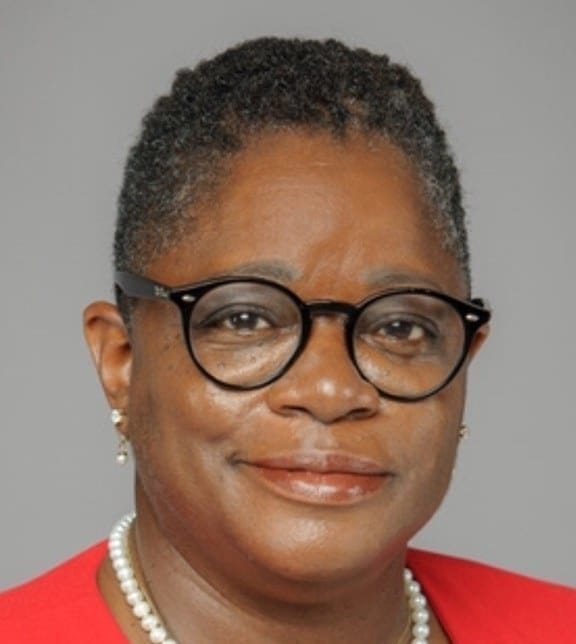
Miami, Florida
Phyllis Williams Kotey, senior judge, is a Clinical Professor of Law at Florida International University (FIU) College of Law in Miami, FL. She began teaching at FIU in 2004 after a distinguished record of service to the bench and bar. She is Director of the Externship and Pro Bono Programs and has facilitated student initiated pro bono legal service in Colombia, South America and around the country including New Orleans after Hurricane Katrina. She served as Director of the Juvenile Justice Clinic and developed the Delinquency, Educational Advocacy and Dependency Clinics at FIU.
Kotey was selected as an FIU Top Scholar in 2014 and was selected as a Fulbright U.S. Scholar for the 2012 – 2013 academic year in Accra Ghana. In Ghana, she conducted research in the area of Alternative Dispute Resolution (ADR) and Access to Justice. She continues to work with judges and court administrators in creating and maintaining bias-free courtrooms and legal systems nationally and internationally, including the Ukraine and South Korea.
Prior to becoming a judge, Kotey served as an assistant state attorney specializing in capital sexual battery cases and serving as chief of the County Court Division. She served as the Associate Dean of the Florida Judicial College. She specializes in the areas of judicial ethics, professionalism, criminal procedure, and trial practice. Kotey is a member of the Diversity Committee of the ABA’s Solo, Small Firm and General Practice Division, ABA’s Commission on Sexual Orientation and Gender Identity and formerly a member of the ABA Judicial Division Committee on Ethics and Professionalism. She served as chair and vice-chair of the Florida Supreme Court Judicial Ethics Advisory Commission and as a member of its Election Subcommittee. She also served on the National Advisory Board for the Committees on Bias in the Courts and the Florida Supreme Court’s Commission on Bias and Florida Court Education Council. She served as chair, vice-chair and treasurer of the Florida Bar’s Criminal Law Executive Council. She was also Vice Chair of the Florida Bar Code and Rules Committee and a member of the Juvenile Rules Committee. She is a member of numerous bar associations and has served as president of the Josiah T. Walls and the T.J. Reddick Bar Associations. Currently, she serves as the president of The American Caribbean Law Initiative (ACLI), a membership organization of educational institutions in the Caribbean and the United States (US) She also serves as a hearing officer for Title IX violations for FIU.
Kotey is the author of numerous articles regarding criminal justice and judicial ethics, and has been the recipient of numerous awards. Since 2020 has been awarded the Difference Maker Award by the American Bar Association’s GP Solo Committee, the Faculty Professionalism Award by the Florida Bar and the V. Robert Payant Excellence in Teaching Award by the National Judicial College.
New York, New York
The Hon. Efrain Alvarado is an acting justice of the Bronx County Supreme Court, Criminal Term in the Twelfth Judicial District of New York. He was appointed in 1994. He was appointed to the criminal court of the City of New York in 1988 and was reappointed in 1991, 2001 and 2011. During his tenure on the Criminal Court, Justice Alvarado was appointed to serve as an Administrative Judge for Criminal Matters of the Supreme Court from 2009-2013.
Justice Alvarado received his B.A. from New York University in 1973. He went on to earn his J.D. from New York University School of Law in 1976. Prior to his appointment to the bench, he spent his legal career with the Bronx County District Attorney’s Office. After serving in various administrative and trial positions, he became the chief of the Narcotics Bureau in 1985. He began serving as the chief assistant district attorney for Bronx County in 1987.
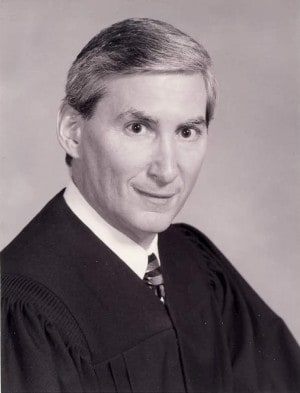
Maryland
Judge Axel served as the Associate Judge of the District Court of Maryland from 1997 until 2013 and continues to sit as a retired judge. His jurisdiction includes criminal misdemeanors, traffic and alcohol-related offenses, domestic violence and civil actions. Judge Axel also served as the Judge-In-Charge of Drug and DUI Treatment Court programs and served as the Co-Chair of Maryland’s Judicial Conference Committee on Problem Solving Courts from 2005 to 2012. In addition to his regular judicial duties, Judge Axel served for more than six years as the judge in charge of a Drug Treatment Court and DUI Court program. He has also served on the Board of Directors of Maryland’s Judicial Institute for the past 14 years. In 2005, Judge Axel was recognized by the Maryland State Bar Association as a recipient of the Judge Anselm Sodaro Judicial Civility Award, which is presented annually to one judge whose courtroom demeanor best exemplifies the highest ideals of civility and courtesy.
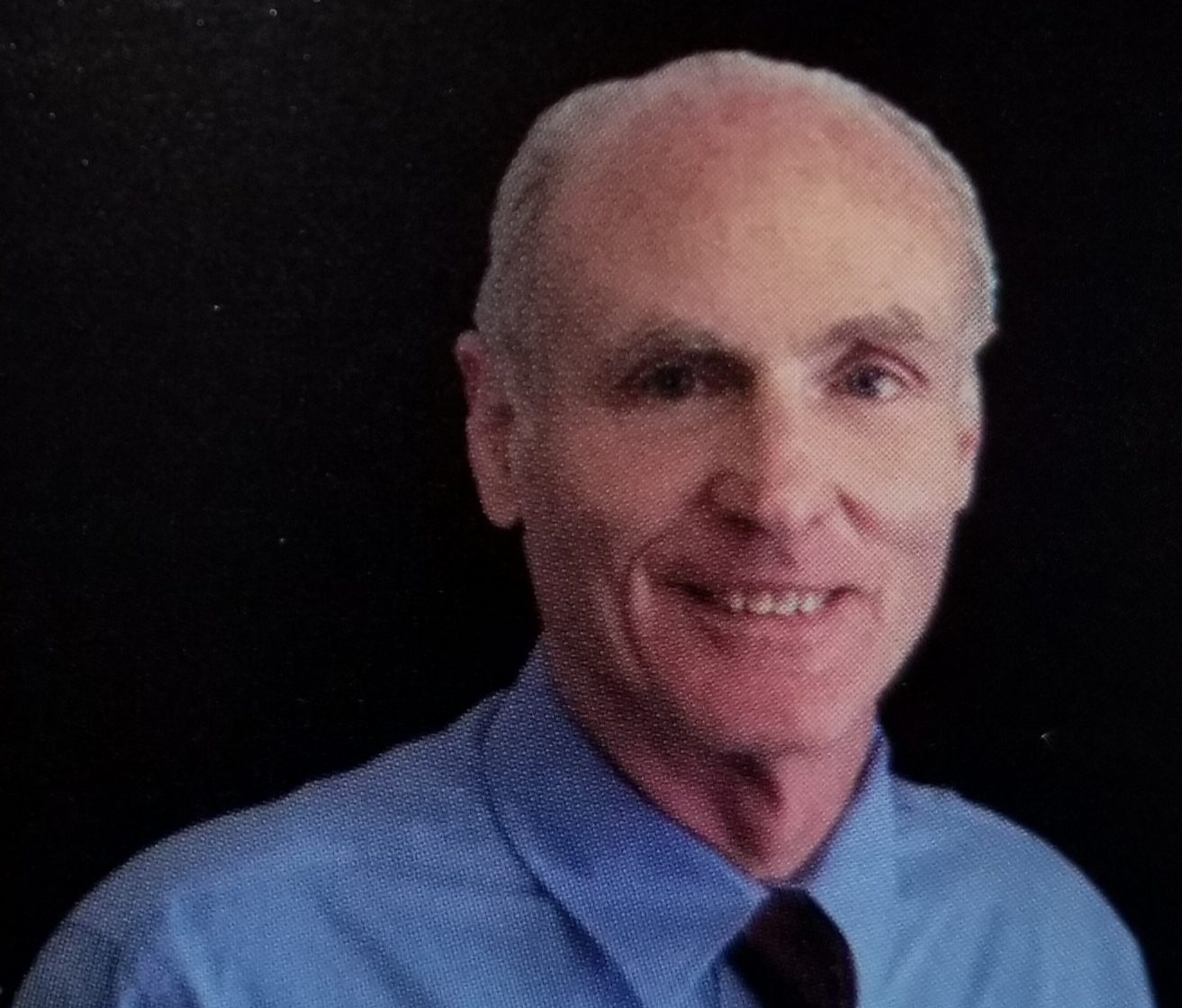
Shirley, Arkansas
Judge Thomas E. Cheffins was appointed a federal administrative law judge with the Social Security Administration’s Office of Disability Adjudication and Review in 2010. Prior to this appointment, Judge Cheffins was the chief administrative law judge for the Department of Public Welfare Bureau of Hearings and Appeals in Harrisburg, PA, a hearing officer for the Cumberland County Domestic Relations Office, and court administrator for the Cumberland Court of Common Pleas. Judge Cheffins received a bachelor’s degree from Pennsylvania State University, master’s degree from Shippensburg University, and Juris Doctor from Widener University School of Law where he graduated cum laude. He has taught for the Pennsylvania Bar Institute, the National Association of Administrative Law Judiciary, and several other state associations, and has authored numerous publications. Judge Cheffins was awarded The National Judicial College’s Professional Certificate in Judicial Development in both Dispute Resolution Skills and Administrative Law Adjudication Skills. He has also received the National Association of Hearing Officials Administrative Law Judge Certification. Judge Cheffins was elected to The National Judicial College Faculty Council in 2007 representing Administrative Law Jurisdiction serving for 6 years and is a past chair. He was re-elected to the Faculty Council in 2020. Judge Cheffins is an alumnus of The National Judicial College, has served as faculty since 2001, and is considered one of its distinguished faculty.
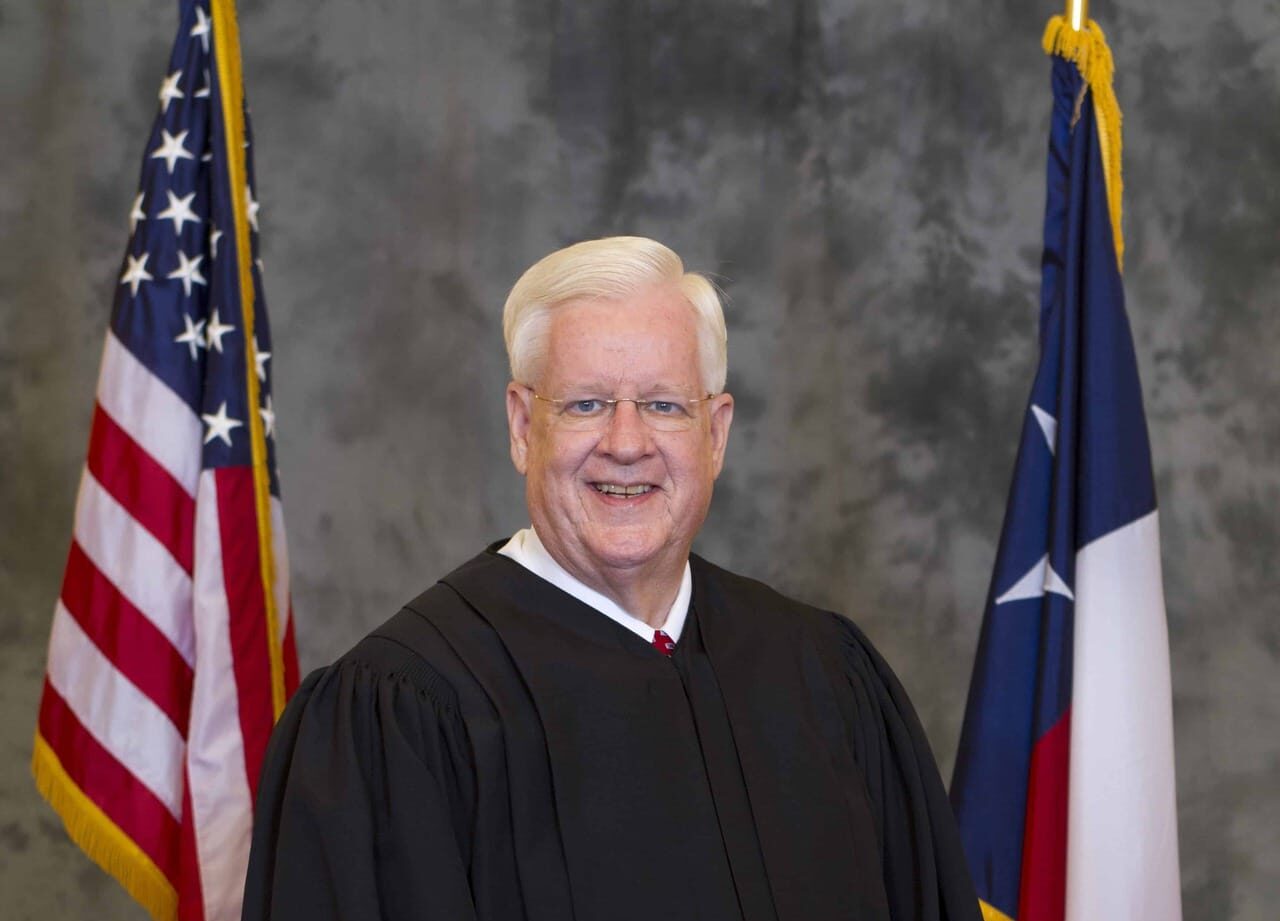
Waco, TX
When he first started in private practice in 1977, Steve Smith called himself an “accidental lawyer.”
Smith had originally enrolled in Abilene Christian University to study music and become a band director. The self-described “fair” French horn player did receive his music education degree, but he was encouraged by a friend to attend law school. That led to him earning a law degree from the University of Texas School of Law. He went into private practice and, ultimately, landed on the bench.
Accidental, his legal career may have been, but Smith has been intentional in advancing the cause of the judiciary ever since.
He has served the past 20 years on the bench of the 361st District Court in Bryan, Texas. After studying at the NJC, he joined the College’s faculty in 2003. Last year he completed his service as a General Jurisdiction representative on the Faculty Council, having served as the council’s chair in 2016.
His commitment to the judiciary goes beyond teaching, too. In 2016 he created an endowment to fund scholarships for Texas judges to attend the NJC.
“The judiciary is often the forgotten branch of government, yet it is so important to the freedoms that we enjoy,” he says. “I want us to have the best judges we can. An entity like the NJC helps ensure that we will have well-educated, competent and fair judges in all the courts in our country.”
Despite the demands of the bench, Smith still finds time for his musical passion. He occasionally leads worship music at his church and has conducted the Brazos Valley Symphony Orchestra on a few occasions.

Judge Edward “Ned” Wahl was appointed to Minnesota’s Fourth District Court in June 2012. Since then, he has handled all aspects of civil, criminal misdemeanor, and family law cases. Judge Wahl teaches for The National Judicial College (evidence, writing, and civil litigation), Minnesota CJE (evidence, civil litigation, and writing), Minnesota CLE (evidence, business torts), and the University of St. Thomas Law School (trial practice). He is active on court and bar committees, and he serves on the board of directors of Minnesota CLE and on the Minnesota Civil Rules Committee and chairs the Civil Jury Instructions Committee.
Judge Wahl practiced civil litigation for 29 years before becoming a judge. He was a partner in business and financial litigation at Faegre Baker Daniels and at Oppenheimer, Wolff & Donnelly, and was associated with Morrison & Foerster. He clerked for the Honorable Gerald W. Heaney, U.S. Court of Appeals-Eighth Circuit. He earned degrees at the University of Chicago (J.D., 1983), the University of Virginia (M.A., 1980), and Northwestern University (B.A., 1978). Judge Wahl joined The National Judicial College faculty in 2016.
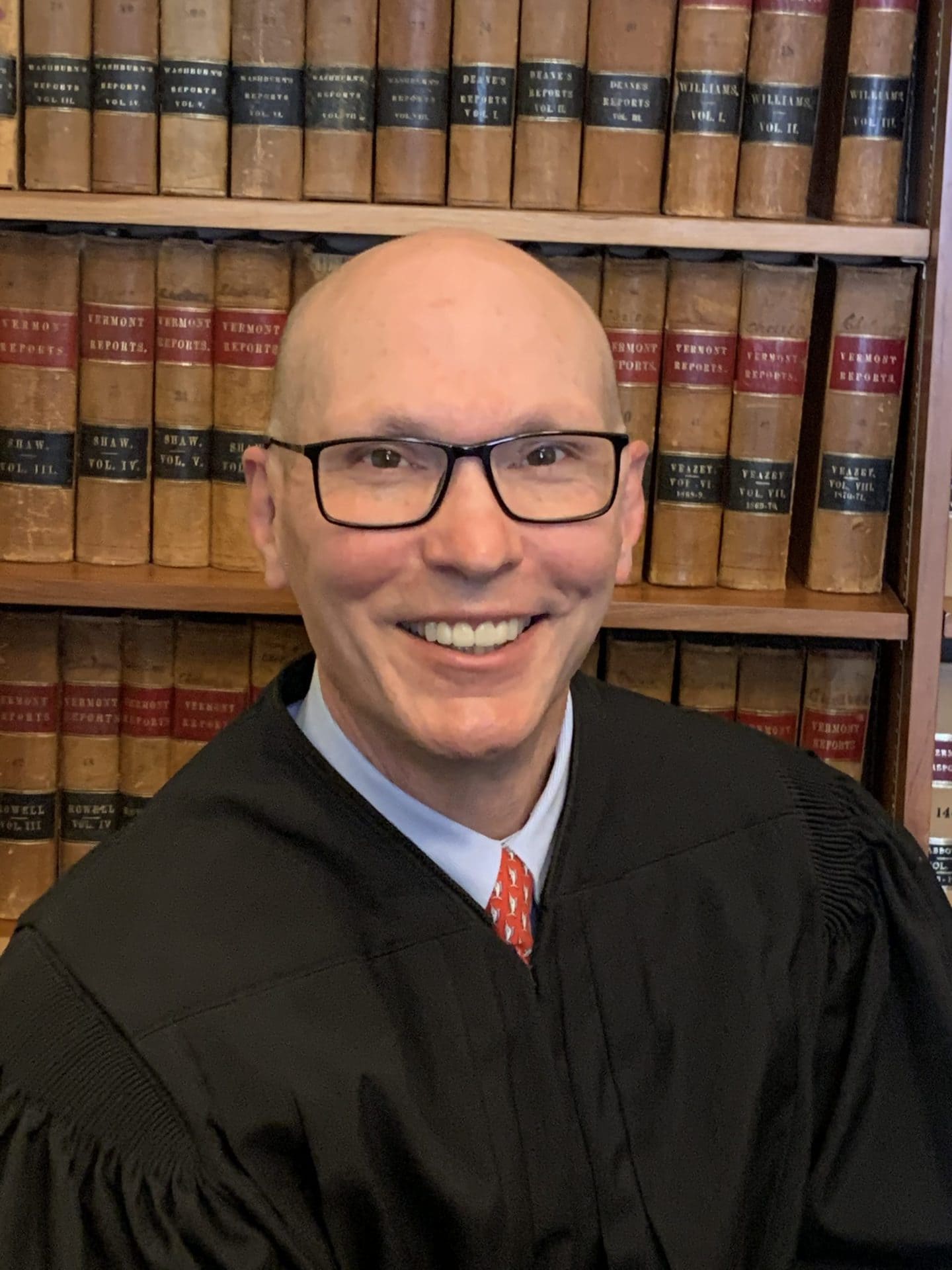
Taftsville, Vermont
Judge Thomas A. Zonay is the Chief Superior Judge for the State of Vermont. He was appointed to the bench by Governor James Douglas in 2007 and appointed as Chief Judge in 2021. Prior to his appointment to the bench, he was an attorney in private practice and before that he was a police officer in Woodstock, VT. Judge Zonay received a bachelor’s degree in food industry from Delaware Valley College and a Juris Doctor from Vermont Law School. He currently serves on the Vermont Sentencing Commission (Chair), the Vermont Coordinated Justice Reform Advisory Council (Chair), the Vermont Judiciary Commission on Mental Health and the Courts (Chair of the Education Committee), the Vermont Judiciary Change Advisory Board (Co-chair),the Vermont Judiciary Standard Practices Committee, the Vermont Judiciary Commission on Diversity, Equity and Inclusion, the Vermont Prison Research and Innovation Network Executive Committee, the Vermont Treatment Docket Executive Oversite Committee, the Vermont Juvenile Justice Stakeholders Group, the Vermont Judicial Workload Study Advisory Executive Committee, the Vermont FTAP Management Team, the Vermont Justice Reinvestment Initiative Domestic Violence Executive Working Group, and the Act 250 Steering Committee. He also serves as a member on the Vermont Civil, Criminal, Family, and Probate Oversight Committees. He has served on the Vermont Judicial Education Committee (Chair), the Vermont Criminal Rules Committee (Chair), the Vermont Public Access to Court records Committee (Chair), the Vermont Judiciary Advisory Council (Chair of Budget Committee), the Vermont Judicial Conduct Board, the New England RJOI Committee (Co-chair Education Committee), the Vermont Racial Disparities Advisory Panel, and the H. 533 Forfeiture Working Group. He has served on the Vermont Bar Association Board of Managers (President, 2005); was a director of the Vermont Bar Foundation; and is past president of the New England Bar Association. He is currently a member, and past president of, the Vermont Trial Judge’s Association. At the time of his appointment to the bench, Judge Zonay was Chair of the Vermont Human Rights Commission and had previously served on other judicial and community boards and committees. He is also a U.S.C.G. licensed Master Captain. Judge Zonay is an alumnus of the National Judicial College, joined its faculty in 2012. He is currently serving his second term on the NJC Faculty Council representing General Jurisdiction and served as the Chair in 2022.


